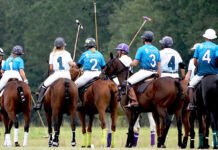Many Mobilians are very surprised to hear about the abundance of feral pigs throughout our area and the state in general. They’re even more surprised to learn that the pigs’ presence is not necessarily welcome. “But doesn’t bacon come from pigs?” they ask. Yes, it does — but hear us out.
It took thousands of years for the four-legged oinkers to reach North America (with the help of a couple famous explorers), but it only took a few centuries for pigs to begin inhabiting American woodlands. In that time, the razorbacks have made themselves quite at home, and the native plants and animals have paid for it. From Europe to Cuba to America, the story of the wild hog might start on the other side of the world, but it stops in our own backyard.
WILD THING
The word “feral” (from the Latin “fera, ” meaning “wild beast”) is used to describe an animal that lives in the wild but is descended from domesticated animals. Feral pigs, therefore, are the descendants of domesticated pigs but have reverted back to carrying many physical characteristics of their wild, European ancestors.
ON THE HUNT
When it comes to hunting, hogs present a unique challenge. Although they have poor eyesight, feral hogs have a keen sense of smell, comparable to that of a whitetail deer. They are also intelligent, quick and muscular. Hunting methods range from walking slowly through hog territory with desirable foods such as acorns to more advanced control methods, such as hunting with night vision goggles and helicopters.
APPETITE FOR DESTRUCTION
Feral pigs are shaggier than their domesticated cousins, and they usually have black fur. They are also omnivorous, meaning that their endless appetite for both plants and animals can disrupt entire food chains. When they aren’t gorging themselves on acorns or rooting up acres of forest floor, they even prey on turtles, fawns, and the eggs of turkeys and reptiles.
STRENGTH IN NUMBERS
Wild pigs reproduce at an astounding rate. A sow (female) can become pregnant at just 6 months old, and pig populations can double in just four months. For this reason, the sheer number of wild pigs means that they outcompete native wildlife for resources. Another problem is that there are only a handful of species that prey on hogs — unfortunately, the Delta isn’t exactly overrun with grizzly bears and cougars.
Moments in Hog History
- At the insistence of Queen Isabella of Spain, Christopher Columbus took eight pigs along on his voyage to Cuba in 1493. It was explorer Hernando De Soto, however, who brought the first pigs (likely the descendants of the Columbus hogs) to American soil on a voyage from Cuba in 1539. Today, at least 23 states have wild hog populations, including Alabama.
- As for the Mobile-Tensaw Delta’s pig population, the working theory is that farmers, in an effort to contain the animals until harvest, would relocate their animals to islands throughout the Delta. Some pigs escaped over the course of time, and feral populations were quickly established. Over the decades, overenthusiastic sportsmen exacerbated the problem by trapping and transplanting these pigs, essentially spreading the population statewide. Although it’s legal, and encouraged, to trap wild hogs, state law requires that all hogs must be killed before being transported.
- Feral pigs have been called the most destructive animals in Alabama. The U.S. Department of Agriculture estimates feral hogs cause around $800 million of agricultural damage each year in the United States.
- To curb the negative effects of wild hogs, the state of Alabama has no closed season or bag limit restrictions on hunting the animal. In fact, it’s even legal to hunt wild hogs from a boat, as long as the boat isn’t under mechanical motion at the time of the shot.
- As for eating feral pigs, their meat is described as tasting much like domestic pork without as much fat. It should be noted, however, that these animals can carry diseases such as brucellosis. Hunters are advised to wear rubber gloves when cleaning hogs and to ensure all pork is thoroughly cooked before eating.
Text by Breck Pappas





